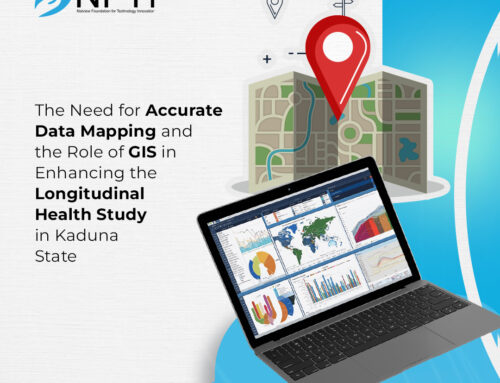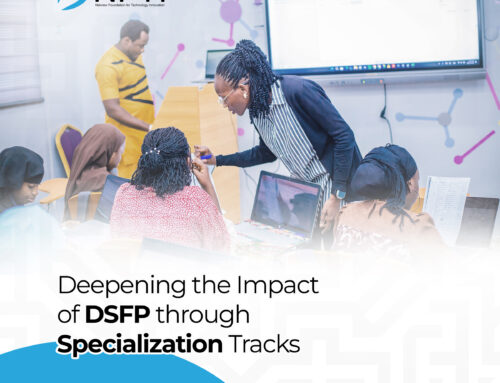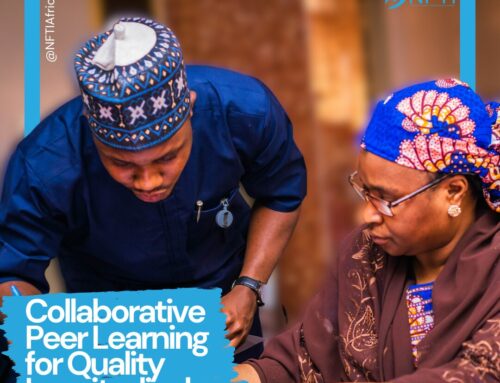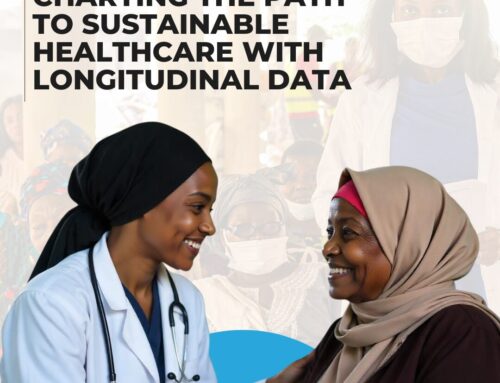In many rural, underserved, and urban communities across Kaduna State, the benefits of the state’s data-driven approach to governance are becoming visible, particularly in critical areas such as the public health sector. It is evident that the state’s ministry of health consistently uses data to improve service delivery by making it more targeted, and real needs increasingly inform government responses. These improvements are a direct result of Kaduna State’s ongoing Data Revolution Plan, which aims to make data the foundation of decision-making.
While progress has been commendable, the pace of transformation must match the urgency of citizens’ needs. Understandably, citizens cannot afford to wait years for systems to fully mature before they feel the impact. Recognising this, Kaduna State sought to learn from a country that had institutionalised data governance and accelerated its results. Rwanda, with a similar population size and a global reputation for embedding data into public administration, emerged as the ideal case study. A strategic study tour was organised to explore Rwanda’s experience and identify practical steps Kaduna could take to deepen its reforms and deliver quicker, more meaningful results to its citizens.
Rwanda’s emergence as a continental leader in data-driven governance has positioned the country as a compelling case study for African governments aiming to strengthen institutional capacity and improve public service delivery. With a population of approximately 13.4 million, Rwanda has demonstrated how strategic investment in data systems, supported by political will and government ownership, can transform development planning. Its relevance to sub-national contexts such as Kaduna State in Nigeria, with a population of over 10 million, lies in its clear, structured, and locally driven approach to using data as a foundation for governance.
In April 2025, a delegation from Kaduna State conducted a study tour to the National Institute of Statistics Rwanda (NISR), facilitated by the Rwanda Cooperation Initiative (RCI) and supported by the Natview Foundation for Technology Innovation (NFTI). The purpose of the tour was to explore how Rwanda has institutionalised data within its governance framework and derive practical lessons that could be adapted to enhance Kaduna’s statistical and planning systems.
Rwanda’s National Statistical System is designed with intention. Data flows from community-level surveys all the way to central planning dashboards, and what we witnessed at NISR was a model of operational discipline. Every figure is tied to a decision. Every statistic has a purpose.
This level of clarity is a product of political will and institutional investment. During our sessions, the Director General of NISR, Mr Ivan Murenzi, explained how the agency is strongly funded by the Rwandan government, with an annual budget running into millions of dollars. This level of domestic financing ensures sustainability and ownership.
The visit also underscored the value of real-time data integration. NISR’s use of digital tools such as CAPI, GIS mapping, and Power BI dashboards has allowed for more efficient data collection, validation, and dissemination.
One of the most powerful lessons for me personally was how NISR communicates. Data is often intimidating, but in Rwanda, it is humanised. Dashboards, infographics, community outreach, and media briefings make statistics relatable. NFTI had always believed that data is only as powerful as the story it tells. Rwanda validates that belief. Data should live in communities, in policy rooms, and in public conversations.
The tour was also a reminder that systems are only as strong as the people who run them. Human capital development also emerged as a pillar of Rwanda’s data ecosystem. The institutional culture at NISR is built on continuous learning, supported by internship programs, technical capacity-building, and performance-driven leadership. This aligns strongly with Kaduna’s own efforts through initiatives like the Click-On Kaduna Data Science Fellowship Program (DSFP), which has trained over 150 young professionals in areas such as data analysis, machine learning, and geographic information systems. Investing in local talent and building a pipeline of data scientists through the DSFP is helping to close the human capital gap and position Kaduna as a leader in sub-national data innovation.
The conversations we had with NISR were rich and technical, but they were also surprisingly human. We spoke about trust, about resilience, and about the cultural shift it takes for a country to adopt evidence-based policymaking. Rwanda hasn’t solved every challenge, but its commitment to data is unambiguous, and that commitment is yielding results. NFTI is already working with the Kaduna State Bureau of Statistics (KDBS) to translate these lessons into action: a strategic plan, a communications framework, training sessions, and a post-tour policy brief.
Ultimately, data in governance is about making sure that budgets serve real needs, that policies solve actual problems, and that public institutions earn the trust of those they exist to serve. Rwanda’s approach illustrates that this is achievable when data systems are owned, well-funded, and woven into the core of planning and service delivery. The clarity and accessibility of Rwanda’s data practices reaffirm that citizens are central to the governance equation.
Kaduna State’s commitment to adopting and adapting these lessons is a step in the right direction. With the right investments in people, systems, and communication, the state can build a statistical ecosystem that drives reform and supports inclusive development. What began as a learning visit must now evolve into action, guided by the belief that data, when used well, can be one of government’s most powerful tools for the public good.





